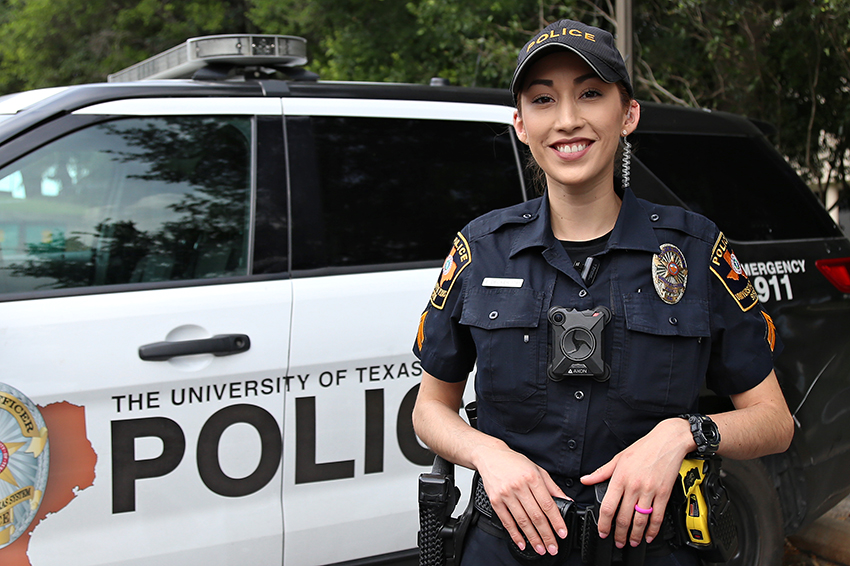Last week, the UT Police Department announced that their officers will begin wearing body cameras in an effort to build trust between the UT community and the department. The response to this change has been overwhelmingly positive, and an air of congratulation has also followed the news. UTPD shouldn’t be praised for finally making their officers wear body cameras; policies like this should be expected.
Body cameras, small video cameras worn by police officers to record both their actions during their shift and evidence at crime scenes, have become more common in the U.S. And in the wake of a rise in racially targeted violence by police across the U.S. in the past year, the demand for them has increased. People want accountability from the police so they can assure themselves that the officers are acting in their best interest.
Sadly, few police departments in the U.S. require their officers to wear body cameras. A 2013 study found that 75 percent of departments surveyed said they didn’t use body cameras. The equipment is costly, not just in terms of the cameras themselves, but in terms of storing the data they collect. However, bringing a sense of safety and trust to a community is worth the cost, and the state should find faster ways to ensure it. The fact that UTPD is only getting cameras now, and that Austin City Council only just voted to fund Austin Police Department acquirement of them shows a lack of action on the part of the legislature.
The use of body cameras reinforces the importance of transparency and accountability within the department. It’s a way to alleviate public concern and mistrust of the police, as well as hold the officers to higher standards.
A study performed in the Rialto Police Department in California suggests that the use of body cameras by officers makes officers more self-aware of their actions while on duty. During the 12-month study, the use of force by officers wearing body cameras decreased by 59 percent and complaints against those officers decreased by 87 percent.
While UTPD protects a campus rather than a city, they still must be vigilant in maintaining trust with students. Even though there are privacy concerns surrounding body cameras along with the concern of the footage only showing a limited perspective, they are still necessary to hold police accountable. Using body cameras will increase the likelihood of students reporting crimes or contacting UTPD when in crisis. They also greatly reduce fear of the police, creating a direct system of accountability.
It is comforting to know that UTPD uses body cameras and that APD will soon use them too. But that doesn’t mean it merits celebration. We should expect, not praise, police officers for wearing body cameras. The standard for our police departments should be simple: to be transparent and accountable when on duty.
Berdanier is a philosophy junior from Boulder, Colorado. She is a senior columnist. Follow her on Twitter @eberdanier.





















